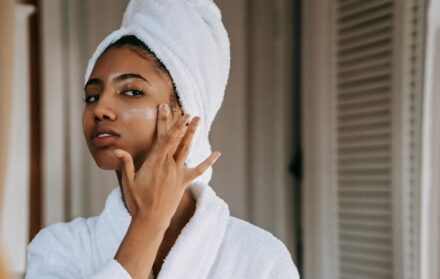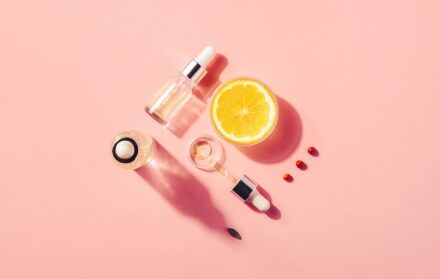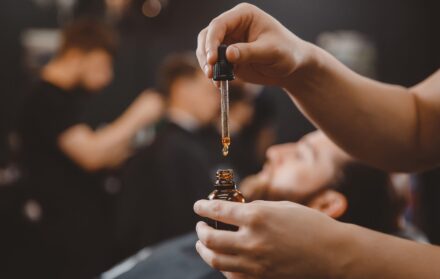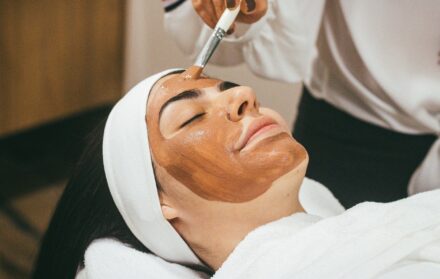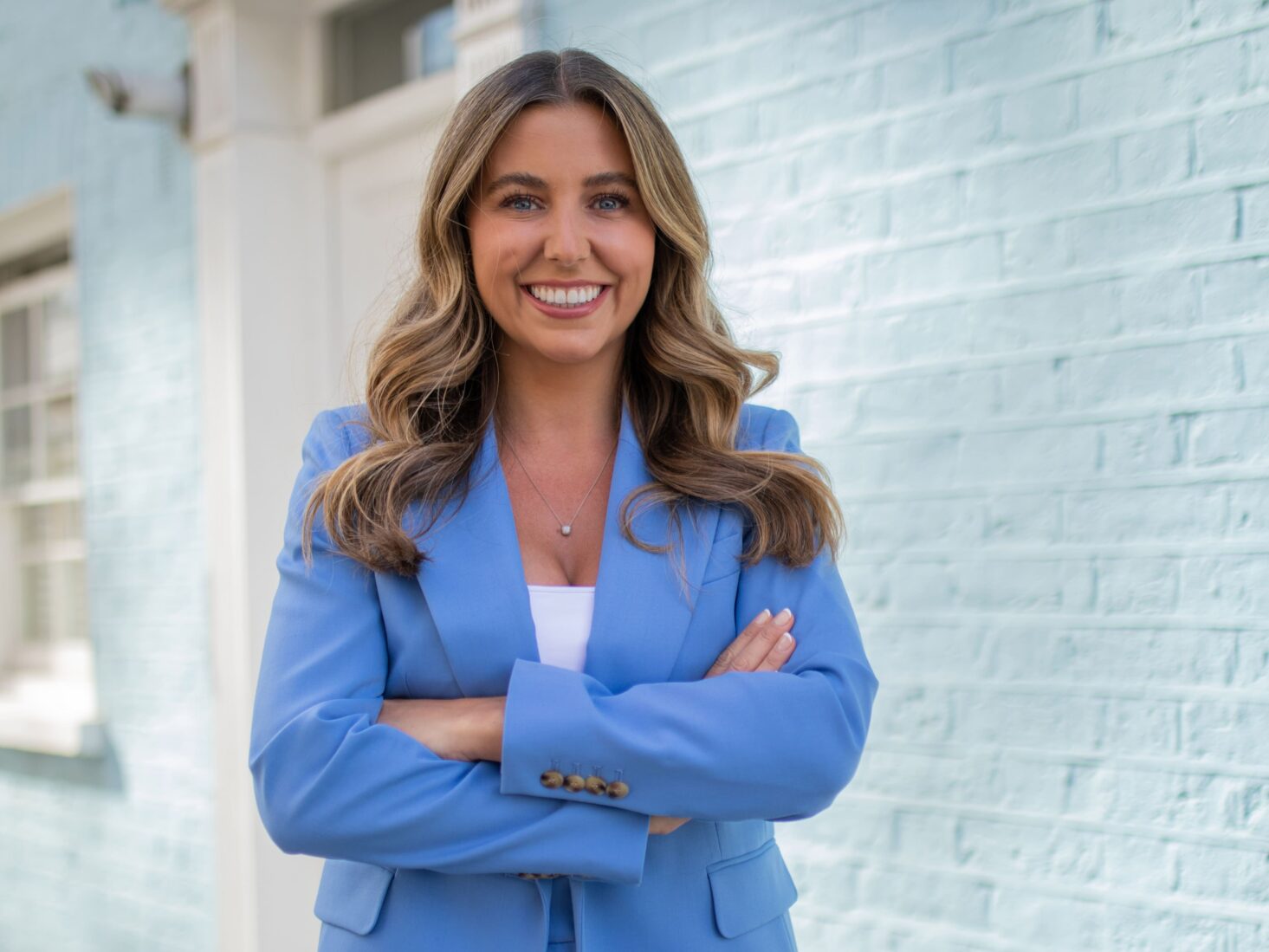
Dr Frankie Jackson-Spence on why you shouldn’t overhaul your wellness routine in January
Meet Dr Frankie Jackson-Spence, the NHS doctor on a mission to take the jargon out of science-backed health research
For many, January is a time to start reconsidering health habits. After all, Dry January and Veganuary – both movements taking aim at our diets – picked the first month of the year for a reason: psychologically it feels like an opportunity for a reset and a chance to integrate healthier habits into our routines. However, from influencers to advertisers, brands and marketers often use January to force the idea that it’s time to overhaul your entire diet and fitness regime. But is dramatically changing your life at the beginning of a new year really a good idea?
Enter Dr Frankie Jackson-Spence: widely known as @drfrankiejs on Instagram – where she’s garnered nearly 50k followers – and as Dr Jackson-Spence to her patients. Having graduated from the University of Birmingham with a medical degree just over a decade ago, Jackson-Spence has spent much of her time since working in London on clinical trials for kidney and bladder cancer and growing her platform on Instagram, where she busts an array of myths related not only to health and wellbeing, but all things lifestyle.
“I have two parallel lives but they intertwine really nicely. My actual medical job is in cancer research […] but I also became interested in how lifestyle behaviours can affect your risk factors and outcomes from treatment when you’ve developed cancer or any other disease.,” she explains. “That led me to the lifestyle route I’ve taken with social media. I’d learnt the academic skills of getting research papers and then would translate the published science in a digestible way. And as my interest in nutrition, exercise, sleep and stress were developing, I got interested in reading the literature on those things too.”
Take a look at her Instagram page and you’ll see an array of Reels discussing topics such as gut health, strength training, high functioning depression and how to boost your immune system with fibre. But what you’ll also see is a 30-year-old woman living her life to the fullest, socialising, going on holiday and enjoying delicious food. Jackson-Spence aims to show a balanced lifestyle, and is a fine example of someone who is healthy and fit while still living a normal life.
As she suggests, you don’t need to ban pizza and go for a run everyday to be healthy, but with so much misinformation and jargon out there, she recently launched a podcast to help the average person learn more about their health from qualified professionals – without even needing a doctor’s appointment.
There was a study by Sainsbury’s supermarket which showed 21 per cent of young people were going to social media first with a health problem – and there’s so much misinformation when it comes to health.
Dr Frankie Jackson-Spence
“It’s called Vision of Health and my ideal listener is someone who has an interest in their health, but doesn’t want to take it to the extreme. There’s loads of fitness and nutrition advice out there, but it can be quite isolating and overwhelming for those who want to live a normal life. Each episode will cover a different pillar of health, so we’ve already had conversations with an immunologist, a sleep specialist, a financial wellbeing coach and a personal trainer,” she says.
“The aim is to gauge what is healthy enough and I think we all need some external validation to know what we’re doing is enough. I’m trying to bridge the gap between the scientific evidence base and then the normal everyday person who just wants to be the healthiest version of themselves.”
We caught up with Jackson-Spence to discover her tips on building a sustainable, healthy routine this month and beyond.
I had a really inspirational teacher when I was at school who had previously worked in cancer research and then became a biology teacher. She was the one who guided me towards medicine: I have always been such a science nerd, I like the cold hard facts. Once I got into medical school and started having interactions with patients, I definitely think it’s more suited to me than just science because I’m very much a people person. I also love the psychology that goes with our health behaviours, and our attitudes towards disease.
When I graduated and became a doctor in London, two things happened. I realised when you’re working a normal job, you don’t have the same dedication to fitness as you do at university. Fitness became a part of my life, and not my whole life. But also I realised more and more people were leaning towards social media for health advice. There was a study by Sainsbury’s supermarket which showed 21 per cent of young people were going to social media first with a health problem – and there’s so much misinformation when it comes to health.
I don’t think all of it is intentional; we have a lot of people who are well read on their area of expertise, but not necessarily well read on other aspects required to make an informed choice. For example, contraception. Someone who may have experience with hormonal contraception may be really clued up on that form but less clued up on the other forms. But when we’re presenting options to a patient, we will give the pros and cons of each type. So on social media, there is often a lack of counter-argument and I felt a real duty as a medical professional with a social media presence to present information accurately with an actual evidence base […] and to scrutinise medical papers and then translate that into digestible content.
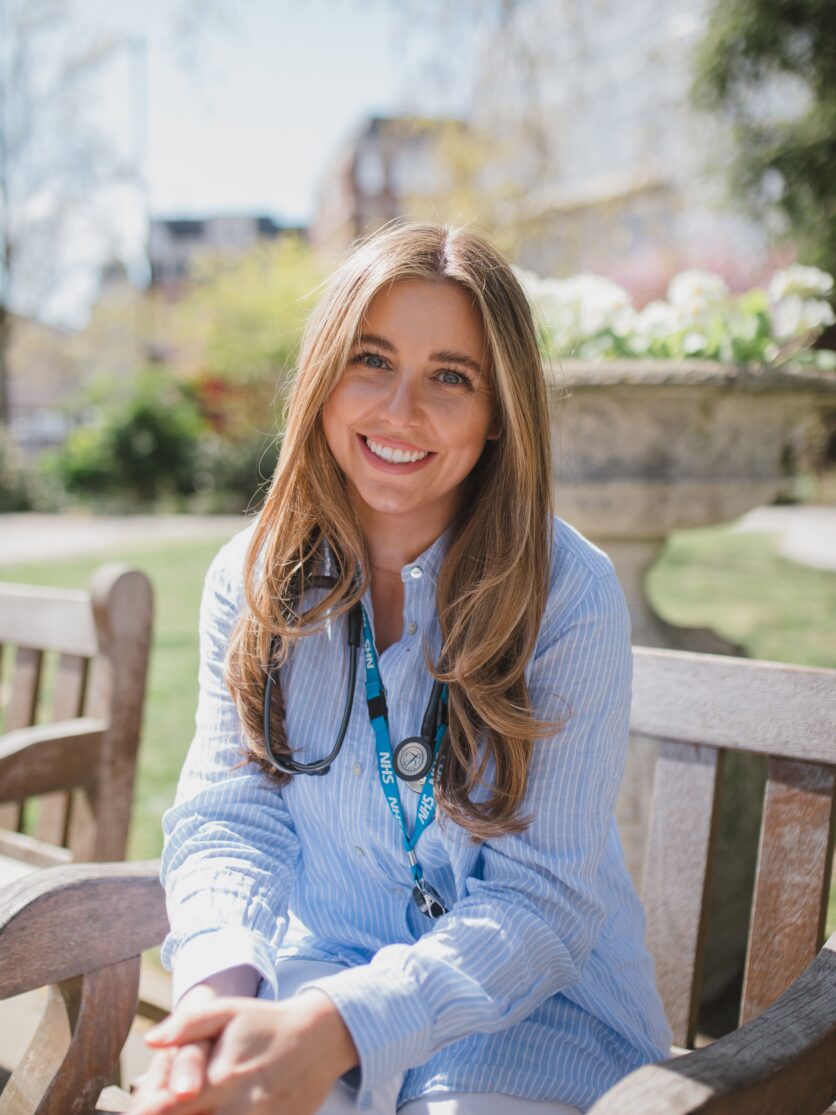
From a medical perspective, any time or encouragement that increases people’s motivation to engage in their health is a positive thing, so I’m really supportive of people who want to use January as a time to reset and focus on their health. However, the negative side of it is when people think they need to completely overhaul their entire life.
My [Instagram] page is very much about what is healthy enough without taking away from living a normal life. Mistakes come when people make routines [that are] so hard to stick to, so the best changes you can make are small, sustainable ones. For example, people who currently don’t go to the gym at all but then sign up to a programme that requires them to go four times a week and overhaul their entire diet makes it very hard to stick to as they’re not in the routine of going to the gym. So what I’d suggest is blocking out three periods a week where you can do some form of movement, and if going to the gym is too difficult, perhaps go for a walk that starts and ends at your front door, and then go for a walk on your lunch break and slowly build the habit. And once the habit is secure, you can then change what the form of movement is.
Another example is when people overhaul their diet and cut out everything they enjoy. When your motivation wanes, because it does, you have to rely on habit. So if you haven’t got those habits ingrained, that’s when you could fall off the bandwagon. Instead of focusing on what we’re cutting out, focus on what we’re putting in. My goal this year is to think about my gut health a bit more, so I’m focusing on eating nutrients and feeding my microbiome, meaning I will naturally eat less of the rubbish.
I’m definitely a routine person. I just don’t think as humans we can rely on motivation, and it’s scientifically proven that motivation eventually reduces and you’ve got to rely on habit. My non-negotiables for my health include getting up in the morning and exercising. That doesn’t mean I’m doing hardcore exercises like going for a run or doing an F45 class, which I love, it can mean stretching or going out for a walk to get a coffee. The reason I do that is because I have a really consuming job with people that take my energy all day. When I show up in a clinic to treat patients, they’re going through the worst time of their life with cancer and treatments so I need to be in great form, being positive and giving them my energy. So I have my evening in the morning, and have a few hours of me-time before the world wakes up. It makes me much more productive for the rest of the day.
I also try to have the first hour of my day phone-free. We’re all way too accessible and I found myself answering emails at 6am on the way to the gym, so I now put my phone on Do Not Disturb and listen to a podcast, and don’t check for notifications until after my gym class or run.
My third non-negotiable is having a pre-bed routine, which usually involves having a cup of Yorkshire tea, because I’m a Yorkshire girl, having a bath, dimming the lights and unwinding before I go to bed. I find that having this routine means my brain anticipates sleep and I find it easier to drift off than getting into bed hyperstimulated, and also the quality of my sleep is better.
Vision of Health is available to listen to on Apple and Acast now. Visit drfrankiejs.com
Read more: The biggest beauty trends of 2024

